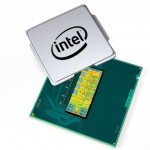
 The screen where users enter their debit card information. Financial startup Square launched a new arm of its business Tuesday that allows two parties to transfer cash between themselves using only their debit card numbers and e-mail. Square Cash may trump similar services like PayPal in ease of use in that it doesn’t require extra bank info, and transactions can happen directly via e-mail. Competitors like PayPal have been able to handle direct debit transactions for some time, though setup is a bit more of a hassle. Users have to enter their checking account numbers and routing numbers and then verify their accounts with two small deposits, so the process can take a few days. With Square Cash, the process begins in e-mail : users send an e-mail to the person they want to pay, cc cash@square.com, and enter the amount in the subject line. If it’s their first transaction, Square sends a second e-mail that leads the user to a screen where they enter their debit card number, expiration date, and ZIP code. Once the person on the other end gets the e-mail and fills out the same form, the transaction is completed in 1-2 days. Read 2 remaining paragraphs | Comments
The screen where users enter their debit card information. Financial startup Square launched a new arm of its business Tuesday that allows two parties to transfer cash between themselves using only their debit card numbers and e-mail. Square Cash may trump similar services like PayPal in ease of use in that it doesn’t require extra bank info, and transactions can happen directly via e-mail. Competitors like PayPal have been able to handle direct debit transactions for some time, though setup is a bit more of a hassle. Users have to enter their checking account numbers and routing numbers and then verify their accounts with two small deposits, so the process can take a few days. With Square Cash, the process begins in e-mail : users send an e-mail to the person they want to pay, cc cash@square.com, and enter the amount in the subject line. If it’s their first transaction, Square sends a second e-mail that leads the user to a screen where they enter their debit card number, expiration date, and ZIP code. Once the person on the other end gets the e-mail and fills out the same form, the transaction is completed in 1-2 days. Read 2 remaining paragraphs | Comments
View original post here:
Square drastically simplifies Internet cash transfers

 For nearly a decade now, TrueCrypt has been one of the trusty tools in a security-minded user’s toolkit. There’s just one problem, though. No one knows who created the software, and worse still, no one has ever conducted a full security audit on it—until now. Since last month, a handful of cryptographers have newly discussed problems and alternatives to the popular application, which lead on Monday to a public call to perform a full security audit on TrueCrypt. As of Tuesday afternoon, that fundraiser reached over $16,000, making a proper check more likely. Much of those funds came from a single $10,000 donation from an Atlanta-based security firm. “We’re now in a place where we have nearly—but not quite enough—to get a serious audit done,” wrote Matthew Green , a well-known cryptography professor at Johns Hopkins University, on Twitter. Read 3 remaining paragraphs | Comments
For nearly a decade now, TrueCrypt has been one of the trusty tools in a security-minded user’s toolkit. There’s just one problem, though. No one knows who created the software, and worse still, no one has ever conducted a full security audit on it—until now. Since last month, a handful of cryptographers have newly discussed problems and alternatives to the popular application, which lead on Monday to a public call to perform a full security audit on TrueCrypt. As of Tuesday afternoon, that fundraiser reached over $16,000, making a proper check more likely. Much of those funds came from a single $10,000 donation from an Atlanta-based security firm. “We’re now in a place where we have nearly—but not quite enough—to get a serious audit done,” wrote Matthew Green , a well-known cryptography professor at Johns Hopkins University, on Twitter. Read 3 remaining paragraphs | Comments 





